|
By: Isabella Astuto On July 4, 2020, rapper Kanye West announced that he would be running for US president. This announcement has sparked many discussions, with most not taking him seriously, for good reason. However, with widespread hesitation surrounding both the Democratic candidate, Joe Biden, and the Republican candidate, President Donald Trump, many are drawn to the idea of voting third party. However, there are many reasons why that’s not a good idea. First, Kanye West is not at all a serious candidate. In Texas, Indiana, New Mexico, and North Carolina it is too late to register as an independent candidate. These are only four of the 50 states, but Texas is a very important state to win, and registration dates for other states may soon pass as well. It is also common knowledge that West is a fan of Trump’s, so many have speculated that this simply a ploy to just take votes away from Biden. Secondly, the chances for any third party candidate to win have always been, and still are, slim to none. Back in 1996, one of the most famous third party candidates, Ralph Nader, was running. He was very anti the two party system, going so far as to openly mock the major candidates. He was very popular amongst the underground, alternative culture, which was growing in popularity in the ‘90s. However, he did not win. Not by a long shot. That is because the US government runs on a two party system. As unfortunate as that is, because not everyone fits into those two parties, and the majority don’t align with every single belief that party or their candidate holds, it is the way things are. All of your friends or the majority of social media that you interact with might agree to vote third party, but that’s a much smaller group of people than you think it is. So when the Electoral College goes to vote and looks at what the majority says, all you and your friends have done is decrease the amount of votes a candidate who could actually win has, possibly causing them to lose. Think about it this way- to change a system, you must first work within it. If you don’t like the two party system, choose which candidate has more policies you like, no matter how few policies that may be. If you pick that candidate, the government as a whole will start to learn further to the left or right, meaning there will be a higher chance that in the future, a candidate who you fully support will be able to plausibly run. While we have the opportunity to vote for whomever we want as President, the candidates who actually have a chance at winning may not be favorable to you, because life isn’t fair. And if you want changes to actually be made, you have to be willing to compromise and cooperate instead of throwing away your vote as a joke or Hail Mary.
0 Comments
By: Dohyeon Kim A few months ago, a transgender student gained admission to a women’s college in South Korea for the first time. However, she decided not to enroll due to the massive opposition she received from the public. While some welcomed the school’s decision to accept a trans woman, many students were vocal in claiming that their school is a place only for biological women. They even put up posters in school to harass the student’s transgender identity. What shocked me was that most of these students, who gushed out a flood of transphobic hate speech, called themselves ‘feminists.’ I have long thought that feminism is about giving people choices, allowing them to be themselves free from the gender norm set by society. As a feminist, who thinks that this movement should be open to everyone who believes in equality, I would never think of excluding trans people or challenging the identity that they have chosen for themselves. But sadly, I came to realize that the exclusion of trans people within the feminist movement is quite pervasive. This is happening not only in Korea but in different places around the world. The transphobic comment of J.K. Rowling, which left many people disappointed and angry, is only one of the many cases. Some people consider trans rights to be in opposition to women’s rights. They’re wrong. In fact, they are not only compatible but connected. According to Robin Dembroff, a Yale professor of philosophy, patriarchy is based on the belief that “‘male’ and ‘female’ are a natural, immutable, and exhaustive binary.” Patriarchy teaches us to fit into one of these two boxes we’re assigned to and to dress, behave, talk, and work accordingly. For centuries, this belief has limited women from being themselves and reaching their full potential. At the same time, this is the exact rhetoric that has been used to stigmatize and discriminate trans people. The oppression against the transgender community and women have the same root cause. By focusing on the intersection of sexism and transphobia, we can better tackle both. Furthermore, we can better understand the experiences of trans women who suffer both forms of oppression. “Ain’t I a woman?” Sojourner Truth asked in 1851 in front of the Women’s Convention in Ohio. She challenged the way people understood “woman” at that time and urged them to include black women’s experiences in defining what womanhood is. An important truth lies in her question. Feminism, from the beginning, has been a process of broadening the definition of women and making sure women with marginalized identities are protected just the same as white, rich, cisgender, heterosexual women. It is time for us to be more intentional about making feminist movement more inclusive and supportive for all: trans women, gay women, women of color, young girls, immigrant women, women with disabilities, women in rural areas, and so on. Our experiences are unique to us, and our culture affects us in different ways. It is important to recognize that we can never fully understand what other people are going through. Therefore, we should not judge others or jump into conclusions about their experiences. When we embrace that simple fact, we progress. When we embrace the differences that exist between us, the feminist movement can be richer. By: Grace Zhang Right now, if you were to crave something that wasn’t in your pantry at home, how hard would it be to go buy it? The majority of you probably have a well-stocked grocery store within driving distance or even just a walk away. It’s hard to believe that in a developed country that there are places where it’s not difficult to find the very foods that the majority of us can so easily buy. But that’s the sad reality, some communities are in areas where they cannot easily access the foods that you and I can at affordable prices. Food deserts resemble its literal meaning; it’s areas that have scarce or no access to affordable and fresh foods due to the absence of grocery stores within a convenient travelling distance. Without easy access to supermarkets, individuals that live in food deserts consume more junk food than healthy foods, which can have a dramatic impact on their long term health. What are the causes of food deserts? Well, certain economic factors have decreased the number of grocery stores in cities and as a consequence, they are located in areas that may require many bus and train rides to get to. In areas where public transportation is rare and the individual does not own a car, going to buy the essential foods can become an all-day task. Food deserts are also characteristically located in African American and brown communities or low-income ones where the majority of the individuals cannot afford a car. Research has found that higher-income communities have three times more supermarkets as low-income ones and African American communities have on average four times fewer grocery stores than white ones do. In addition to the lack of access to nutritious food in low-income communities, junk food chains can be found in large numbers there. Individuals in these communities tend to work longer hours and lean towards a convenient meal, that combined with the low amount of stores where fresh meats and produce are available, results in fast food restaurants garnering an increased amount of profit. This pattern leads to more junk food chains opening locations in these neighbourhoods. To combat this inequality, food desert activists have come up with creative solutions to help more people eat healthier. Nonprofit grocery stores are those that are smaller than regular ones and often receive donations or help from volunteers to keep it running. In 2013, Fair and Square Grocery opened in Chester, Pennsylvania, a city where all of its grocery stores had closed. Fair and Square receives support from the government and other donors and offers customers who are below the federal poverty line discounts. Another solution is a mobile grocery store. Fresh Moves Mobile Market, based in Chicago and started by the Urban Growers Collective, is a store that is located on an old school bus. Inside the bus are fresh vegetables and fruits. Instead of having the individual travel to the store, the store goes to them. Nutritious and fresh foods play an extremely prominent role in living a healthy lifestyle. Those who have little access to such a vital part of maintaining one’s health will suffer consequences in the long run. Even with innovative solutions like nonprofit and mobile grocery stores, there continue to be many individuals who aren’t able to buy what they need. In the future, we can only hope that this inequality is reduced and that where you live doesn’t determine what you eat. By: Farishta Anjirbag The Loving Embrace I smile at the watchman as I enter my friend’s building. He’s new, I’ve never seen him before, but I always smile at the watchmen. It’s rude not to. He beams back at me. Smiles are fluid, they wash over you fleetingly, but with warmth. It is a good moment when strangers with nothing in common can share in a smile, as if they have known each other from afar this whole time. I have too much trust, perhaps, so I am taken aback when his eyes move down. I feel them slithering uncomfortably over my body, as if it were more than just a gaze. My good moment turns into swampy slush. His roaming eyes trap me in time, and I feel, though I am walking by, that I cannot move. But he is still smiling. __ When I visit my mum’s aunt, we all sit in her living room. There isn’t much I have to say, nor much I want to say, as they discuss family and children and neighbours and the last few months. Then it’s lunch time and my mother and my grandmother and my mother’s aunt all walk across to the kitchen, and my father and my grandfather and my brother and my mother’s uncle lean back in their chairs and discuss government and economic policy. I sit with them, quietly. I look nervously around the room, attempting inconspicuousness in my glances at the clock. It is awkward, with its hands spread apart, unbalanced. It seems to have stopped, though I can hear it ticking. I look at it again and again, wondering when it will move. My grandmother lovingly urges me to join her in the kitchen, so I don’t have to sit amidst the men, incongruous and silent. I do. It’s more comfortable in there, but I still don’t say much. __ I am in the eighth grade, my elder brother three years my senior. I have an exam the next day. He is hungry. Our mother, on her way out, asks me to make him noodles. I protest – the bubbling topography of instant noodles boiling will not be tested in my geography paper. Noodles are easy, he can make them himself; I have an exam tomorrow. No, please make them for him, it’ll only take two minutes. I want to laugh. He can make them himself. Please just make them, I’m getting late. I can only look on, speechless; and then somehow manage a nod. She leaves with a grateful smile. Before I know it, I am standing over the stove, wondering if the instant noodle steam will unfreeze me. __ You can’t wear those shorts outside anymore. I wore them last week. I’m suddenly too old today? How can I argue when my father tells me this is for my own good? He loves me, he wants me to be safe. But his love alone cannot vanquish indecent men from the streets, so my full-length jeans must try. I cannot raise my voice and tell him that nothing will happen to me, and I cannot tell him that I can handle myself. I am moving to my room to change but I feel as though I don’t understand action anymore. __ I have a gift, deep inside me, to share with one man one day. I will give it to him in the perfect moment, when nothing can go wrong, when contract has bound him to me. It is unclear whether he is going to have the same gift for me. Nevertheless, I cannot share this gift with the boy I love now, I am far too reckless at 19. If I give it away today, what will I have left? I take a deep breath and protest to my mother. I’m not going to wait till marriage. She says she cannot control me when I am older and living by myself. I thought my gift was that I help you when you don’t have to ask, that I like to create, that I want to make a difference in the world, that I always try to be kind. But women are special, they have treasures built into their bodies even before they have to work for anything more. I can feel the weight of my gift now, pinning my soles to the floor. I am exhausted, standing still. __ I live a life of love, abundance, and liberties greater than many can stake their claim to. I live a life of understanding and kindness, value and privilege. I am loved by everyone around me, people who care for my well-being; who don’t let me get home late for my own safety; who scorn the notion of me getting a motorcycle taxi ride from a male driver; who teach me to master the art of perfectly round chapatis so I am never inadequate; who say I am as good as any man but men can be bad sometimes; who like me, care for me, smile at me, and want me to have a good life. I have everything I need. Yet, I am stranded in this sea of love, on an island of deep-seated restriction. Nineteen years have passed here; I have learned: inequality doesn’t always stomp on your face and spit on you. Sometimes it just wraps you up in a tight, tight hug. And you find it hard to move. -Farishta Anjirbag By: Ashley Rosser If you want to start your activism journey, and don’t know how, you have come to the right place. I know it can be overwhelming. There are so many organizations, committees, and nonprofits. When I got into activism, I had no idea where to start, and I’m sure many can relate! That’s why I’m here. So if you’re ready to get involved, let’s begin. What is Activism? The definition of activism is "the policy or action of using vigorous campaigning to bring about political or social change." But really, activism means that you're passionate about an issue, and you're actively advocating for it and trying to solve it. Activism comes in many different forms, writing to public officials about your concerns, speaking up about the issues on social media, and going to protests. There's so many other ways you can be an activist, but those are just a few. Why is Activism Important? Change comes from a million little actions, not one significant action or project. Everyone can make a difference in the world. Without activism, without people advocating for change-making, we would not be where we are today. If John Locke didn't advocate for inalienable rights, we would not have them. If Martin Luther King didn't work day in and day out to get African Americans the rights they deserve, we wouldn't have the progress we have today. If Elizabeth Cady Stanton did not hold the Seneca Falls Convention, women wouldn't have the rights they do. But, there's so much more work to do. We need justice, we need solutions, and we need a better America. This is why we are activists. Groups to Get Involved In Climate Change There are so many problems in today's world that need to be solved. You can start with one, or pick a few and become advocates for them! One of the biggest problems right now is climate change. A fantastic organization that advocates for climate change is Sunrise Movement. They conduct workshops, host events, and have local hubs across the country. I recommend joining a regional hub to meet changemakers in your area. All you have to do is email them and find out ways you can connect! Feminism If feminism and or women's rights are your thing, Girl Up is the way to go. They host events, clubs, and challenges If another issue interests you, look up the issue and organizations that deal with it. Voter Suppression Voting is one of the essential aspects of a functional democracy. But, there is so much voter suppression across the nation. If you want to help solve the problem, a great place to start is When We All Vote, you can sign up to be a voting captain, and get your community registered to vote. Simple Ways To Get Involved If you are not ready to join a group, you can do amazing things from home. A fantastic way to show your concern for an issue, you can email elected officials. Tell them about your interests and a solution if you have one. Maybe they are already addressing the problem, and you can get involved. You can make a difference with family members from your house, research the topic you're passionate about, and educate your family members on what they can do to help. Some of the most amazing solutions come from inspiring conversation. You don't have to do big grand solutions to make a difference. A thousand little solutions will make a big, sustainable one. You're not alone in your activism; everyone is working together to create a better world. By: Layla Hussein Before being known as the world’s most powerful country with copious opportunities, America began its roots as thirteen colonies under Great Britain’s rule. The salutary neglect and heavy taxations imposed upon the American public without their consent resulted in a seven-year revolution. As Americans chanted “no taxation without representation” and engaged in dire battles that left the economy in shambles, the country ultimately gained their independence on July 4th, 1776...at least for white America. Even during the time of 1776, marginalized people, predominantly slaves, were not free. They were rather abused, raped, killed, and overall treated as inhumane in a country that supposedly preaches “all men are created equal” in the Declaration of Independence. July 4th is undoubtedly one of the most important celebrations in America, but during the time of 1776, the celebration itself ostracized African American citizens because it symbolized the rise of white supremacy against minorities. Efforts in recognizing the atrocities of slavery throughout history can be traced back to the Emancipitation Proclamation issued by President Abraham Lincon on January 1, 1863. But slaves were actually deemed free two years later in Galveston, Texas on June 19th, 1865. This day (simplified to Juneteenth) was more than just a celebration for the black community, but it exemplifies their freedom, power, and jubilance with being recognized as a human being beyond just a piece of property to a slave owner. But despite Juneteenth claiming their freedom, as well as the 13th, 14th, and 15th amendments protecting the lives of African Americans, black people still never lived freely at any moment in history. There were people during the time that held a strong contempt and deep hatred for black individuals, and these people were usually in positions of power. They took advantage of their authority to disseminate their racist ideologies to preserve a country built upon white power, such as the Jim Crow laws that legalized discrimination and racial profiling against black people. The rise of intellectually driven black activists though, such as Martin Luther King and Malcolm X, who organized several peaceful protests and actively spoke against white supremacy, managed to change the perception surrounding black people in an empowering light. Black people have been fighting for their real independence to the point where they do not have to fear for their lives anymore solely for existing, and the fight continues today in 2020. With the death of George Floyd, as well as justice waiting to be served for Breonna Taylor, Ahmaud Arbery, Elijah McClain, Trayvon Martin, and millions of other black people who’ve been wrongfully murdered, black people are still protesting in the streets, chanting “no justice, no peace” and “black lives matter”, similarly to how white Americans chanted “no taxation without representation” to gain their independence, except that black people are still silenced by those in positions of power. But today is the country’s day of finally gaining their independence from Great Britain. While you have barbeques with your family and watch the fireworks in the night sky, think about how black people are being lynched by officers that are reported as suicides, and undocumented kids, who genuinely want a life to live, are locked in cages behind ICE custody. Happy Independence Day, America. By: Pauline Francez Gordula On June 13th, Bienvenido “Ben” Tulfo, a Filipino radio personality, released a tweet that chastised Frankie “Kakie” Pangilinan’s stance on how sex crimes should be prevented. On a Rappler article, police from Quezon Province reminded girls on a now-deleted Facebook post to not wear short clothes to avert sex crimes. Pangilinan shot back, calling for people not to rape instead of teaching girls how to dress. In Tulfo’s tweet, he mocked Pangilinan by calling her “hija” and claimed that whenever a rapist or sex offender sees an opportunity to commit their malicious deeds, they will grab it without hesitation. He ended the tweet by warning girls to be more careful with what they wear, or else they are inviting the beast. Being a predominantly Catholic country, the Philippines has ingrained the idea of conservatism for generations. At a young age, girls are instructed to dress modestly to avoid catching unwanted attention from the opposite gender. If someone sees a girl dress scantily, they would label the girl a “slut” or would think that she is asking for “it”. Boys, on the other hand, aren’t taught to refrain themselves. Society has excused their boys’ actions because of the old saying, “Boys will be boys.” The Spaniards, who colonized the country for more than three hundred years, painted an image that a Filipino woman is “meek” and “submissive”. Colonial women are expected to only attend to household chores and maternal duties, making women dependent on men for livelihood. This dependency fueled machismo (an exaggerated sense of masculinity) that will eventually play a role on how men function in society. During the Japanese occupation of the Philippines, Filipino women were used as comfort women by the Japanese army. Between 1942 and 1945, thousands of Filipino women were abducted and raped. 70 years later, these women still struggle to find justice for the cruelty they faced when they were younger. Originally meaning “I’m a young girl”, the #HijaAko movement was launched by Pangilinan, encouraging females to fight for their rights as human beings by sharing their stories of sexual harassment. Thousands of women from all over the Philippines posted about their experience under #HijaAko. Some stories revealed their abusers’ identities while others did not. Through this platform, harassers are being held accountable for the trauma they inflicted upon their victims. In February 2016, Social Weather Stations (SWS) conducted a survey on two barangays in Quezon City regarding street harassment. The survey revealed that 88% of women ages 18 to 24 have experienced sexual harassment at least once. Whenever a woman comes forward to talk about her experience on sexual harassment, people would often ask, “What did you wear?” or would blame her by saying, “It’s because of what you’re wearing!” Women of all ages face harassment, regardless of how skimpy or covered they are. An innocuous child can be a victim, without them knowing that they are enticing older men because of what they wear. An elderly woman, who is fully clothed, can be targeted by teenage boys. Harassment knows no bounds. When I was around nine years old, I was catcalled by a truck driver while waiting for a jeepney with my mother. I looked down to what I was wearing: a pair of khaki shorts. I blamed my clothing for the unwanted trauma I received. From that moment, I vowed to never wear a pair of shorts again every time I would go outside my house. And I didn’t for four years. In retrospect, I wished my mother said something to comfort me, but I understood that like everyone else, she was desensitized to how men in society are. Now at seventeen, I was able to reconcile with my nine-year-old self, reassuring her that her clothes were just fine. Without proper education, boys will continue to believe that women exist for their own pleasure. This mindset would only result in prevalence of women objectification and of sexual harassment. Women are free to wear whatever they want. Clothing, to some women, is art. It’s how we express ourselves. Sometimes, it’s not easy for us to muster the confidence to wear several clothes because we’re afraid to be mocked or criticized. It is not flattering to get catcalled by strangers. We don’t need your input on what we are wearing, nor are we trying to entice anyone. We wear clothes for our own satisfaction. #HijaAko. Bagayas, Samantha. “'Inviting the Beast'? #HijaAko Trends as Women Call out Victim Blaming.” Rappler, 14 June 2020, www.rappler.com/move-ph/263773-hija-ako-trends-women-call-out-victim-blaming.
Don’t tell me how to dress. Digital image. Thomas Reuters Foundation News. 14 June 2014. https://news.trust.org/item/20140614180950-e9to2 “In the Philippines, 'Comfort Women' Who Suffered in WWII Fight to Keep from Being Erased from History.” Https://Www.thelily.com, The Lily, 1 June 2019, www.thelily.com/in-the-philippines-comfort-women-who-suffered-in-wwii-fight-to-keep-from-being-erased-from-history/. Rodriguez, Fritzie. “The Streets That Haunt Filipino Women.” Rappler, 8 Mar. 2016, www.rappler.com/move-ph/124993-sexual-harassment-women-streets. Torralba Titgemeyer, Lorna S. “La Mujer Indigena - The Native Woman.” The Native Woman, 1 Mar. 1997, www.univie.ac.at/ksa/apsis/aufi/wstat/mujer.htm. Written by: Ashley Rosser It's important to celebrate the small victories along the road. If your goal is to have a six-minute mile, celebrate when you chafe 30 seconds off. It'll keep the momentum and make you even more excited to get to your goal. In the last month, the Black Lives Matter Movement has come into a whole new light. Communities are coming together to fight for justice that innocent lives deserve. The Black Lives Matter Movement has a pretty big goal; to reform and or banish the current police system, to get justice for the victims of police brutality. Lastly, for future generations to live in a world where people of color don't have to fear for their life just because of the color they were born with, While that is a pretty hefty goal, it's what needs to be done. Instead of hyper-focusing on the end goal, please take a second and celebrate the many incredible wins that we've earned. George Floyd's Killers are Facing Charges On May 25, 2020, George Floyd was killed in Minneapolis during his arrest for paying with an alleged forged $20 bill. Derek Chauvin, who pressed his leg against Georges's neck, now faces 2nd-degree charges. J. Alexander Kueng, Tou Thau, and Thomas Lane have been charged with assisting Derek in the murder. It goes without saying that I and the movement will not stop until the officers are found guilty and in jail, but it’s important to celebrate how far we’ve come. This arrest was the fastest time the Minneapolis Police has ever charged an officer. Breonna Taylor On March 31st police entered the home of Kenneth Walker and Breonna Taylor. The officers entered the house on a suspicion that they were involved in drug selling. As they came, they did not knock or identify themselves as law enforcement. Mr. Walker then shot one of the officers on the premise that they were there to harm him and Breonna. Detective Brett Hankison then shot Breonna several times, resulting in her death. Mr. Walker was then arrested for “attempted murder”. Detective Brett Hankison, one of the three officers responsible for taking the life of Breonna Taylor, has been fired. While we will not stop until Breonna sees the justice she deserves, Brett Hankison will not harm another human being wearing the badge that is meant to serve. With that being said sign this petition to give Breonna justice, https://www.change.org/p/andy-beshear-justice-for-breonna-taylor Donald Trump Signs Executive Order In response to the protests across the globe regarding police brutality, On June 16th, President Donald Trump signed an executive order. This executive order will ban chokeholds unless met with a deadly force and a national database for police brutality. Many elected officials have spoken out about the law, saying it’s “not enough.” Although it lacks the reform we need, it is a step in the right direction. Communities Coming Together Communities from across the world have been coming together to protest what is right. It’s amazing to see communities coming together for a greater cause. Seattle, Washington In Seattle, Washington, many residents have moved into the Capitol Hill Autonomous Zone to protest police brutality. Bexar County Young Ambitious Activists have been forming peaceful protests in the Bexar County area as well as cleanups for the downtown San Antonio area. San Francisco, California On July 6, 2020, Residents of San Francisco formed a human chain and kneeled for 8 minutes and 46 seconds, the amount of time George Floyd was pressed against the hot concrete. -- The Black Lives Matter movement is going to be a long fight, but also a satisfying one. We will not rest until everyone gets the justice they deserve, and future generations will be safe. Take a minute, pat yourself on the back, the petitions you signed, the protests you went to, the money you donated all meant something. Reflect on your wins, and never stop fighting. AuthorAshley Rosser is a determined and passionate activist who loved to get involved in her community. She began her activism journey when she joined the Civics Unplugged Fellowship where she learned about how a functional; democracy is built as well as the importance of self-reflection. Ashley learned what she was truly passionate about through this program and sought out more organizations to help further her education. She started writing for Bloom Empowering Military Teens and became a Humanity Up Ambassador. Ashley is passionate about writing, climate change and women's rights. |


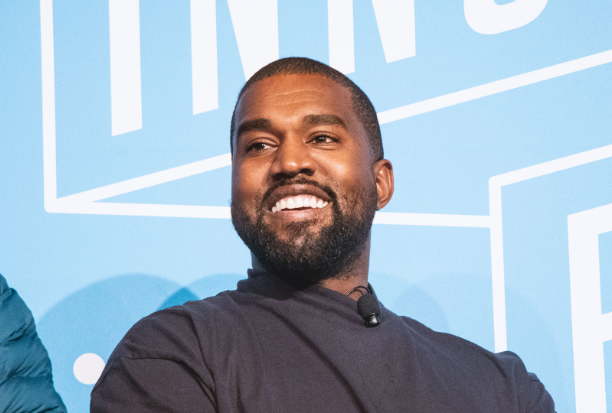
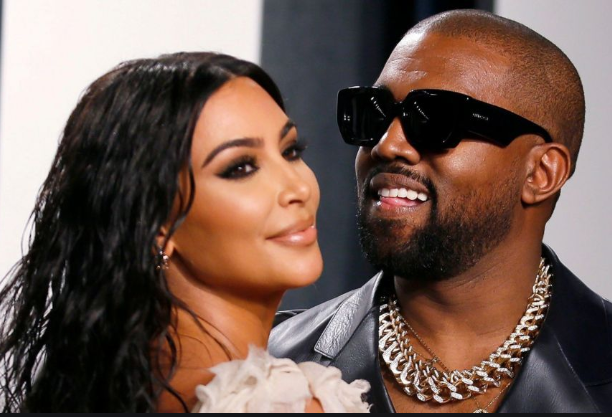
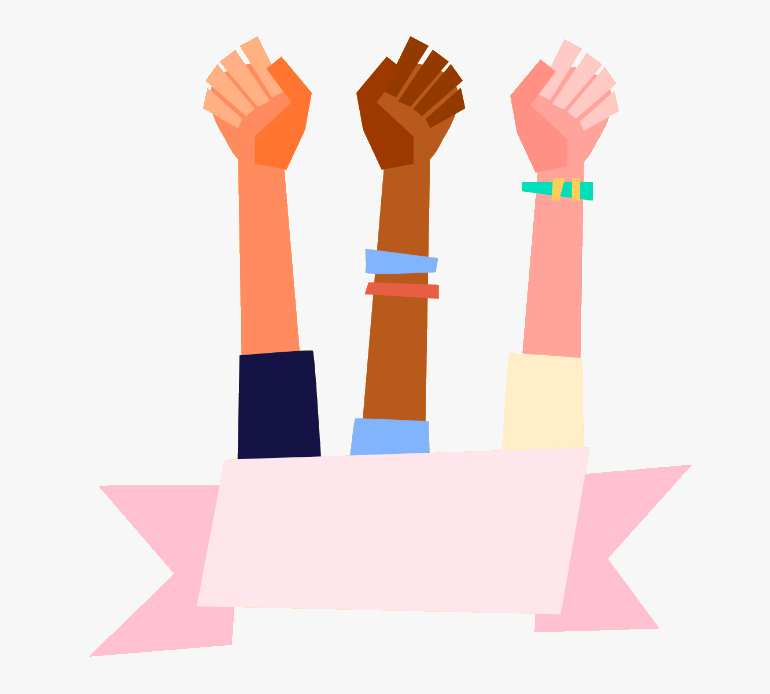
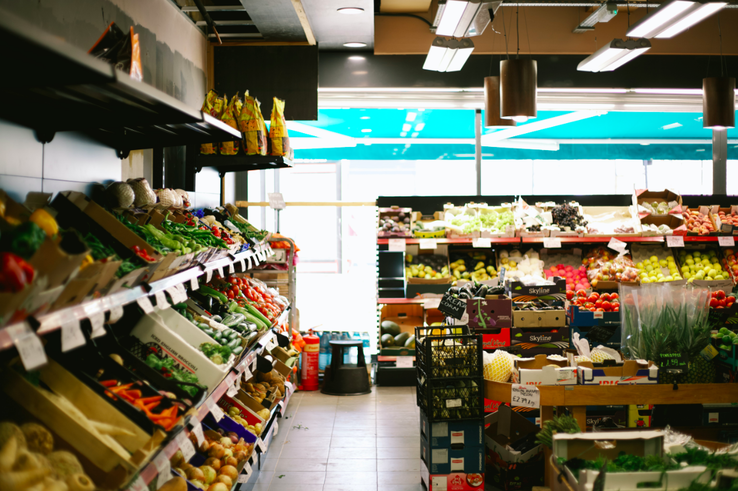
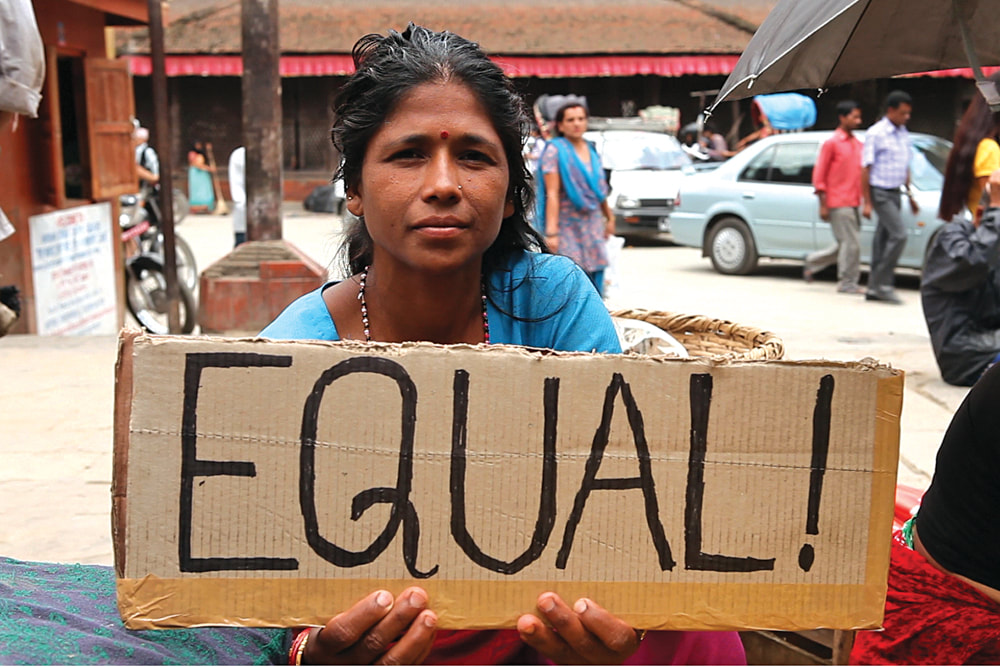
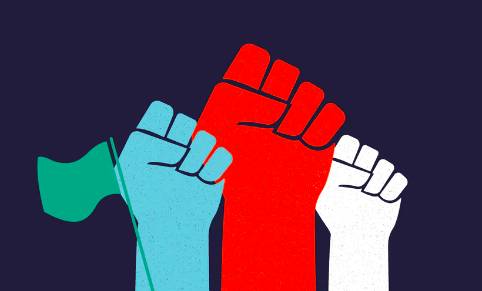
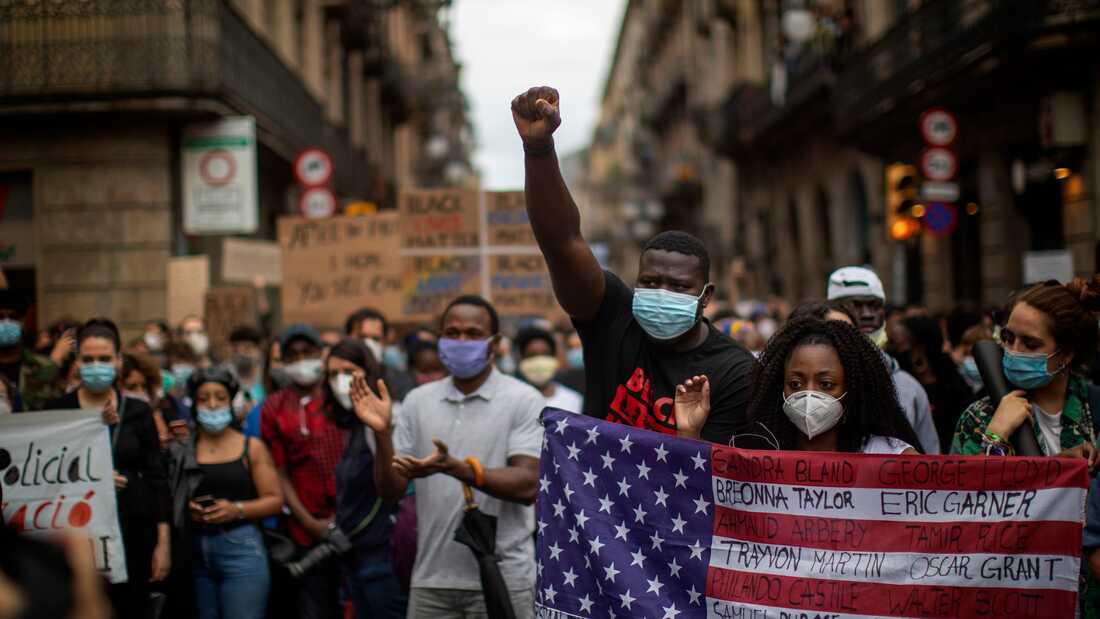
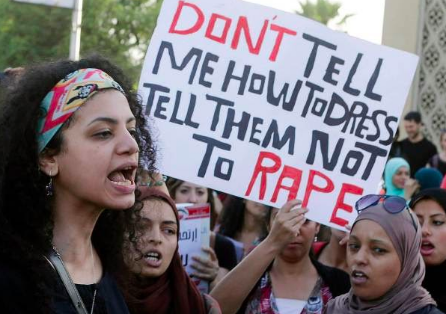
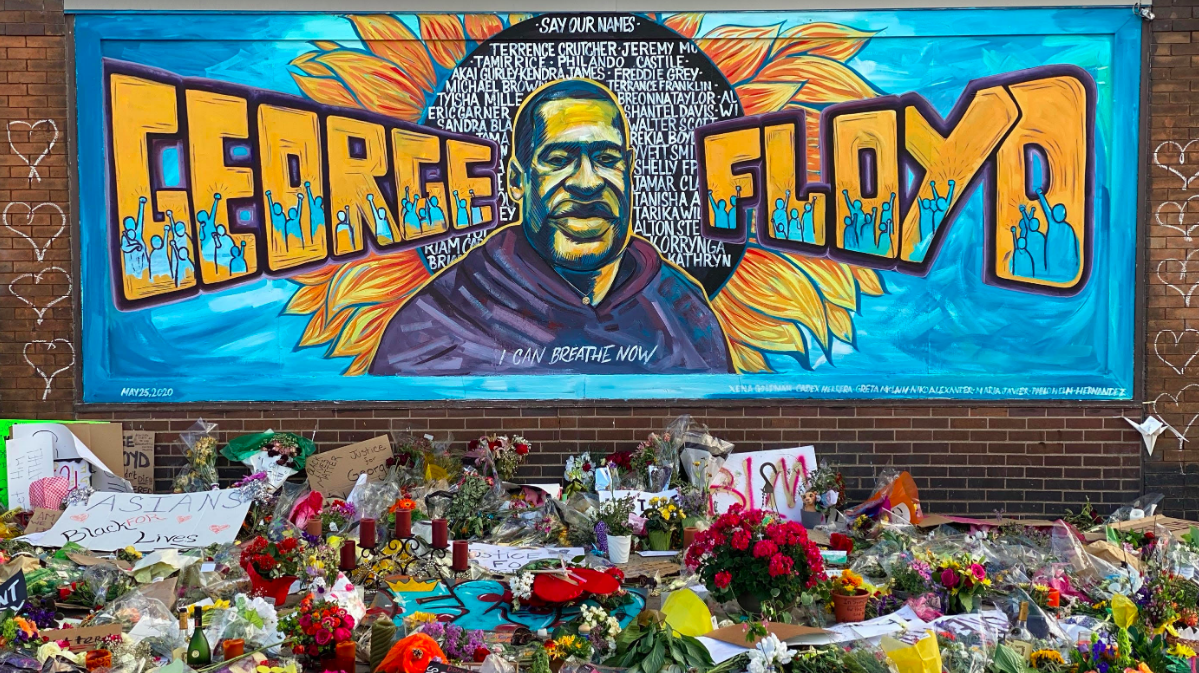
 RSS Feed
RSS Feed
